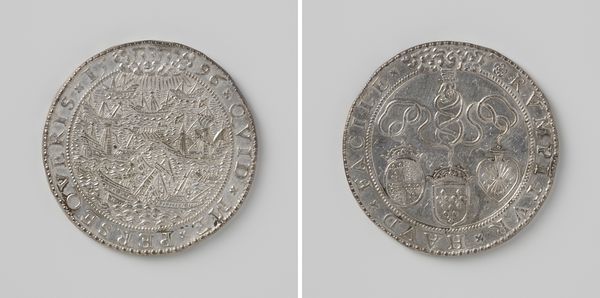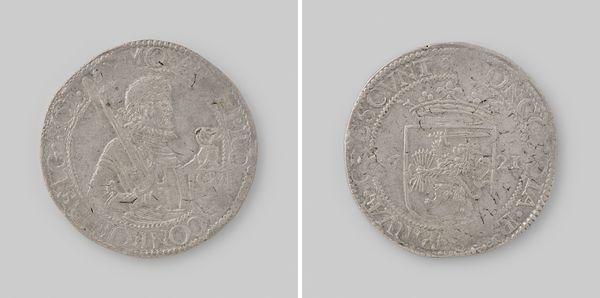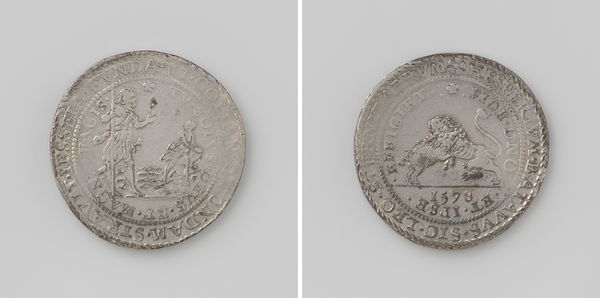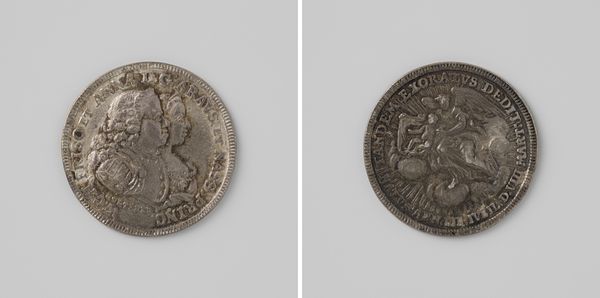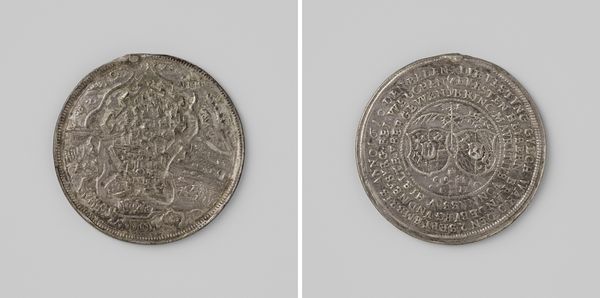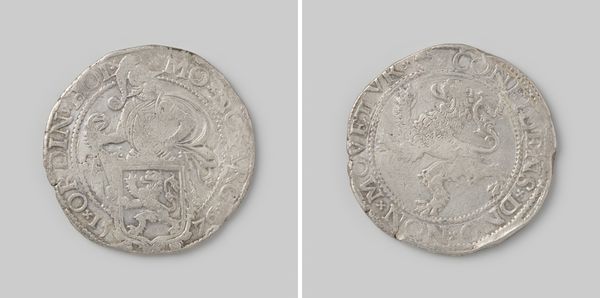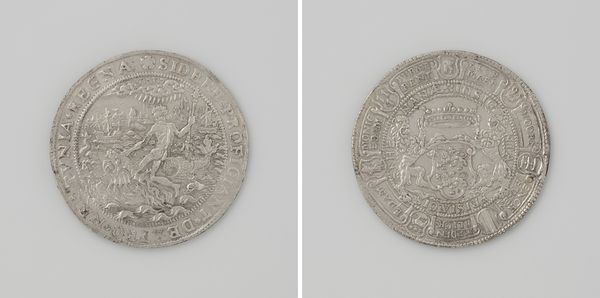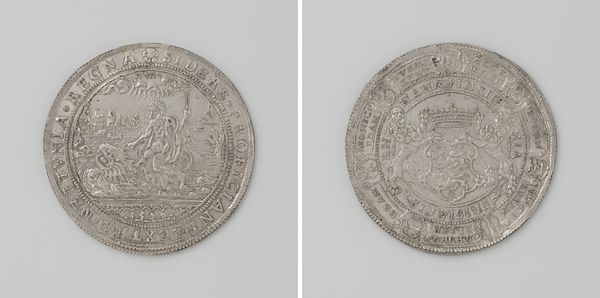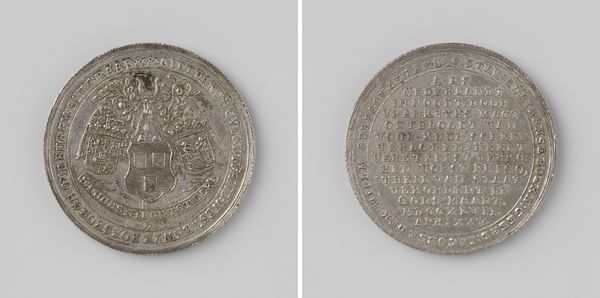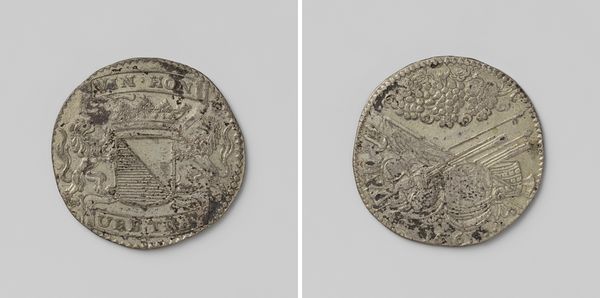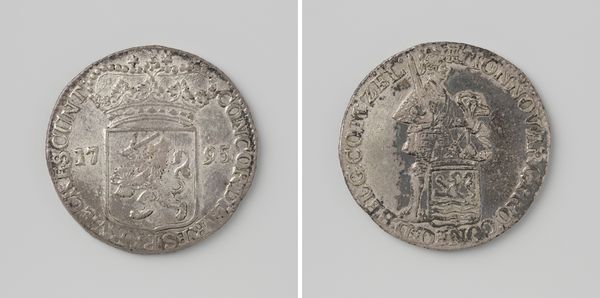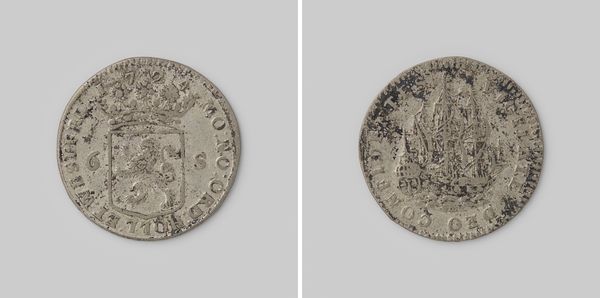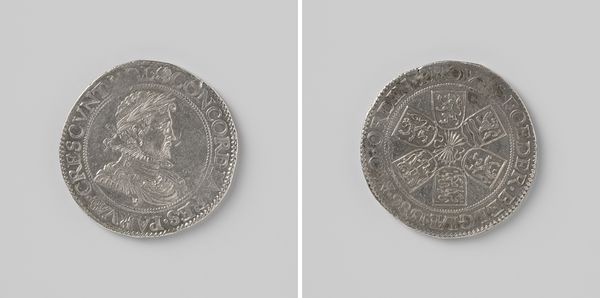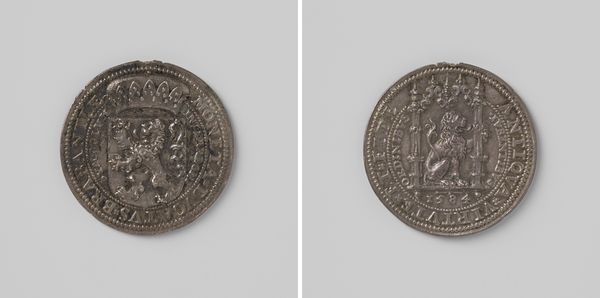
print, metal, engraving
#
decorative element
#
baroque
# print
#
metal
#
ceramic
#
history-painting
#
engraving
#
decorative art
Dimensions: diameter 5.7 cm, weight 52.68 gr
Copyright: Rijks Museum: Open Domain
This silver coin, “Toespeling tot volharding aan de Remonstranten,” was made by Johan Wijntgens in 1619. Its small size belies the large symbolic weight it carries. Coins are typically made through a process of die-striking, where a design is engraved into a hardened metal die, which is then pressed onto a blank coin under high pressure. The resulting impression captures fine details, as you can see in the images on both sides of this piece. The choice of silver as a material speaks to its intrinsic value as a precious metal, and is commonly associated with currency and trade. The coin’s imagery is related to the religious and political controversies surrounding the Remonstrants. By producing and circulating these coins, individuals could publicly declare their allegiance and disseminate a political message. The durability of the metal allowed for the message to be spread more widely and over time. Consider how such a small object can embody complex ideas, reflecting the deep connections between materials, making, and socio-political context.
Comments
No comments
Be the first to comment and join the conversation on the ultimate creative platform.
